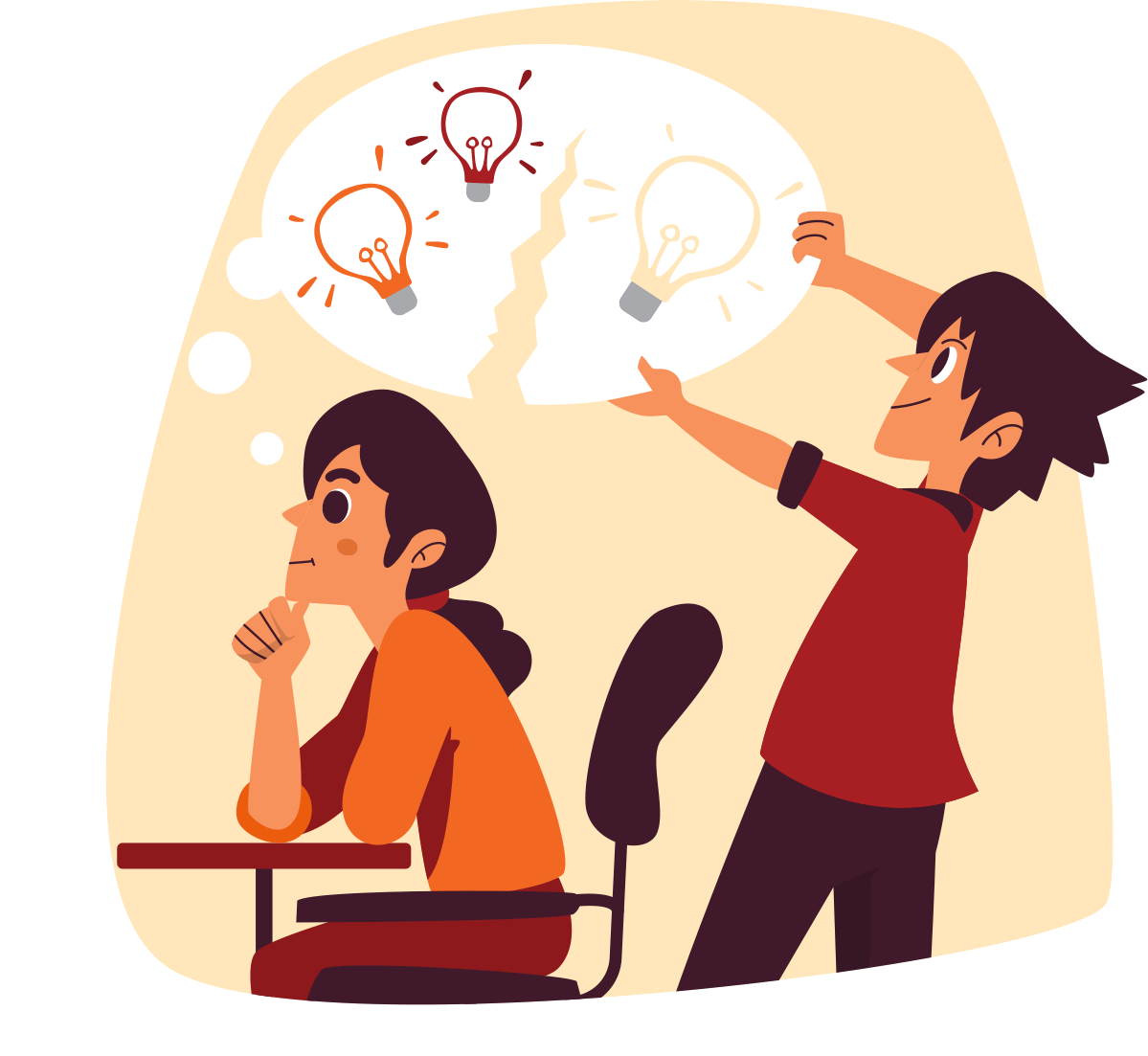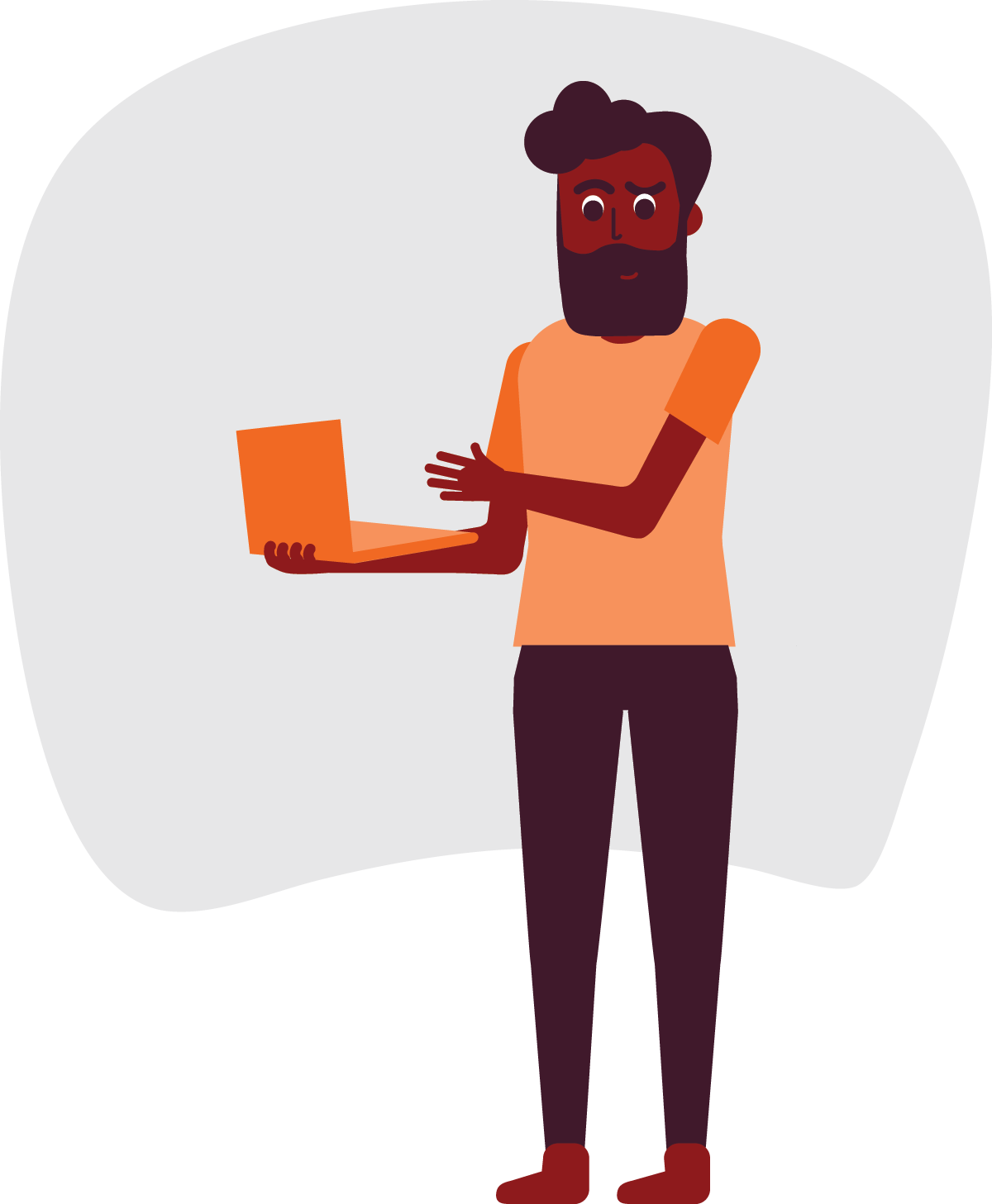How Can You Help Your Students to Accept Failure or Losing and Continue on Coursehero

What is an Academic Integrity Violation?
Incidents of academic misconduct are known as academic integrity violations. An academic integrity violation includes any number of practices that fail to show that a student has done their own work in their own words. Violations include deliberate acts of deceit and misrepresentation, but also include the unintentional effort to obtain an academic advantage for yourself or for your fellow students.
- Cheating and Plagiarism »
- Understanding Academic Writing »
- Why Do We Cite? »
- Possible Reasons for Academic Misconduct »
- Consequences of Academic Misconduct »
Cheating and Plagiarism
Generally, when we talk about academic integrity violations, we are talking about cheating and plagiarism.
Cheating
Langara College describes cheating as "an act of deceit, distortion of the truth, or improper use of another person's effort to obtain an academic advantage". Many activities that a student might undertake to gain an unfair or unearned academic advantage fall under the larger umbrella of cheating.
Cheating includes unauthorized collaboration, fabrication, falsification, and misrepresentation. It can also include plagiarism. Let's look at these ideas more closely.
Cheating on Tests, Quizzes, and Final Examinations.
Examples include:
- copying from another student's exam, test, or quiz paper or screen;
- letting another student copy from your exam paper or screen;
- obtaining or using a copy of an exam before it is given;
- using unauthorized textbooks, materials, or technologies during an exam;
- communicating with other students or other persons during an exam;
- obtaining, having, or distributing unauthorized information about exams and exam materials through material or online methods (e.g. Course Hero); and/or
- arranging for another person to sit an exam in your place.
Cheating on Assignments, Lab/Research Work, Practicums, & Group Work.
Examples include:
- collaborating with others on an assignment without the express permission of the instructor;
- giving essays or other assignments, in whole or in part, to other students in person or online;
- distributing your own work or information about assignments through websites like Course Hero or Chegg that other students might use to gain advantage;
- preparing and/or sharing work, in whole or in part, with the expectation that another student may submit to meet course requirements;
- submitting any academic work containing a reference to a source that has been fabricated, falsified, or misrepresent, including in research or lab work (e.g. making up fake lab results);
- submitting, in whole or in part, an essay, presentation, or assignment more than once, whether the earlier submission was at this or another institution unless prior approval has been obtained from the instructor(s);
- taking credit for group work that you did not complete; and/or
- helping or allowing another student to cheat or plagiarize.
See the Langara College Policy F1004 for more detailed information: Policy F1004– Academic Integrity (PDF)
Contract Cheating
Contract cheating is when a third party completes academic work for a student (with or without payment) and the student submits it for a grade.
Also known as academic outsourcing, essay mills, paper mills, theses-on-demand, and homework help services, among others, contract cheating occurs when a student arranges for someone else to complete their academic work and then submits the work for assessment/credit.
By participating in contract cheating, students jeopardize the reputation of their credential and the reputation of the institution, risk being extorted, and/or being expelled from the College.
Learn more about contract cheating and how to protect yourself.
Plagiarism
Langara College describes plagiarism as "the presentation of words and/or images and/or ideas from another person or source as if they were one's own". Plagiarism can be intentional or unintentional.
Plagiarism can range from submitting an entire assignment that is not your work to copying a specific phrase within an assignment taken from a source without acknowledging or properly citing that source. As you write, always ask yourself the question, "should I be citing a source for this"?
Here are several different behaviours that can be considered plagiarism:
Direct Plagiarism (copy and paste)
Copying another writer's work with no attempt to acknowledge that the material was found in another source (including another student's work).
"Patchwork" Plagiarism
Copying material from several writers and rearranging it without citation.
"Word Switch" Plagiarism
Using synonyms to change words in a source to make it appear as if they are the student's own; using language translations to mask the source and present the content as if it is the student's own work.
Plagiarism in graphs, charts, figures, statistics, or images
Using any of the above without identifying the source.
Citation errors
Incorporating another writer's words/phrases into a paraphrased text, without quotation marks or proper citation. Paraphrasing or summarizing a text without acknowledging (citation) that the ideas are taken from another writer. Using words or ideas from another writing with an attempt to acknowledge the source, but doing so without adequate or correct citation.
"Common knowledge" errors
Failing to cite material because it is mistakenly assumed to be "common knowledge".
Bibliography or reference list errors.
Failing to ensure a bibliography or list of references is complete and accurate.
Adding sources to a bibliography or list of references that were not used.
Fabricating a source.
See the Policy F1004 – Academic Integrity (PDF) for more detailed information.
Understanding Academic Writing

Why Do We Cite?

When you cite your sources, you provide publication details for the original work to your readers so they can find it, you give credit to the author of the original work, and you strengthen your own argument by incorporating credible works by experts in the field. You also show your instructor that you're well informed and have read widely and deeply from appropriate sources that best support your argument.
If you have any questions about how to cite, the Langara library is a great resource.
- Langara Library: Citing Your Sources »
- Langara Library: Ask a Librarian »
"Academic Integrity is important to me because it's a fundamental rule by which we can create different ideas and new ways to express our work while respecting others' ideas and thoughts. Never express someone else's work as it is your own." – Amanpreet K
Possible Reasons for Academic Misconduct
Why Do People Make the Mistake of Plagiarizing?
Here are a few examples of excuses that might be presented when a student is accused of plagiarism.
"It was an accident."
Sometimes you may include information or ideas in your work that you forgot to cite. While this may be unintentional, it is still plagiarism. It is part of your responsibility as a student to double-check your work and make sure that all of your sources are cited correctly.
"That's such a good idea how can I say it any other way?"
Putting other people's ideas into your own words can be challenging when you are a new writer or when you run out of time because of leaving an assignment to the last minute. But using your own words shows us that you are learning. If you absolutely must use someone else's words, you must include a citation and format your quotations properly.
"I ran out of time."
It can become very easy to simply cut and paste other writer's words when you run out of time.
"It's not a big deal."
Plagiarism is a big deal and each year many students are charged with academic integrity violations. Your growth and learning is important to you and to us.
"No one will notice."
In fact, your instructors at Langara will notice, and if they suspect you have plagiarized, they will investigate and present you with the evidence.
Consequences of Academic Misconduct
The Impact of Cheating and Plagiarizing
In addition to academic penalties, cheating and plagiarizing has several other serious consequences.
Student learning is affected. Every assignment, test, and exam you do is an opportunity to gain new knowledge and demonstrate your skills. Through practice and perseverance, your skills and abilities increase and prepare you for success in your professional pursuits. You lose that opportunity when you cheat or plagiarize. Not only do you risk academic integrity violations, and the reputation of the college or particular department, but you also may be ill-prepared to do your job effectively.
It's always important to remember that academic misconduct is never worth it. Below are some videos discussing the risks of cheating behaviors and the many consequences:
Watch the videos.
mcginleynownspattles.blogspot.com
Source: https://langara.ca/student-services/academic-integrity/academic-misconduct.html
0 Response to "How Can You Help Your Students to Accept Failure or Losing and Continue on Coursehero"
Post a Comment